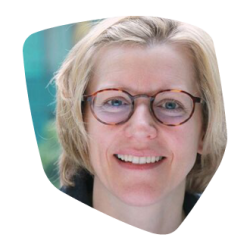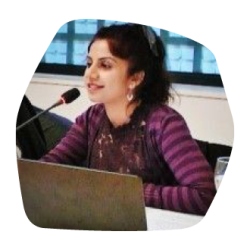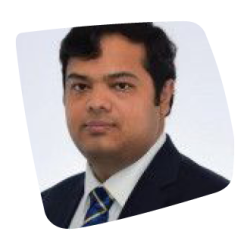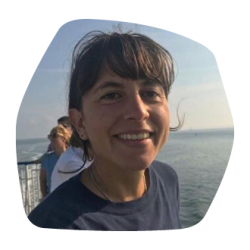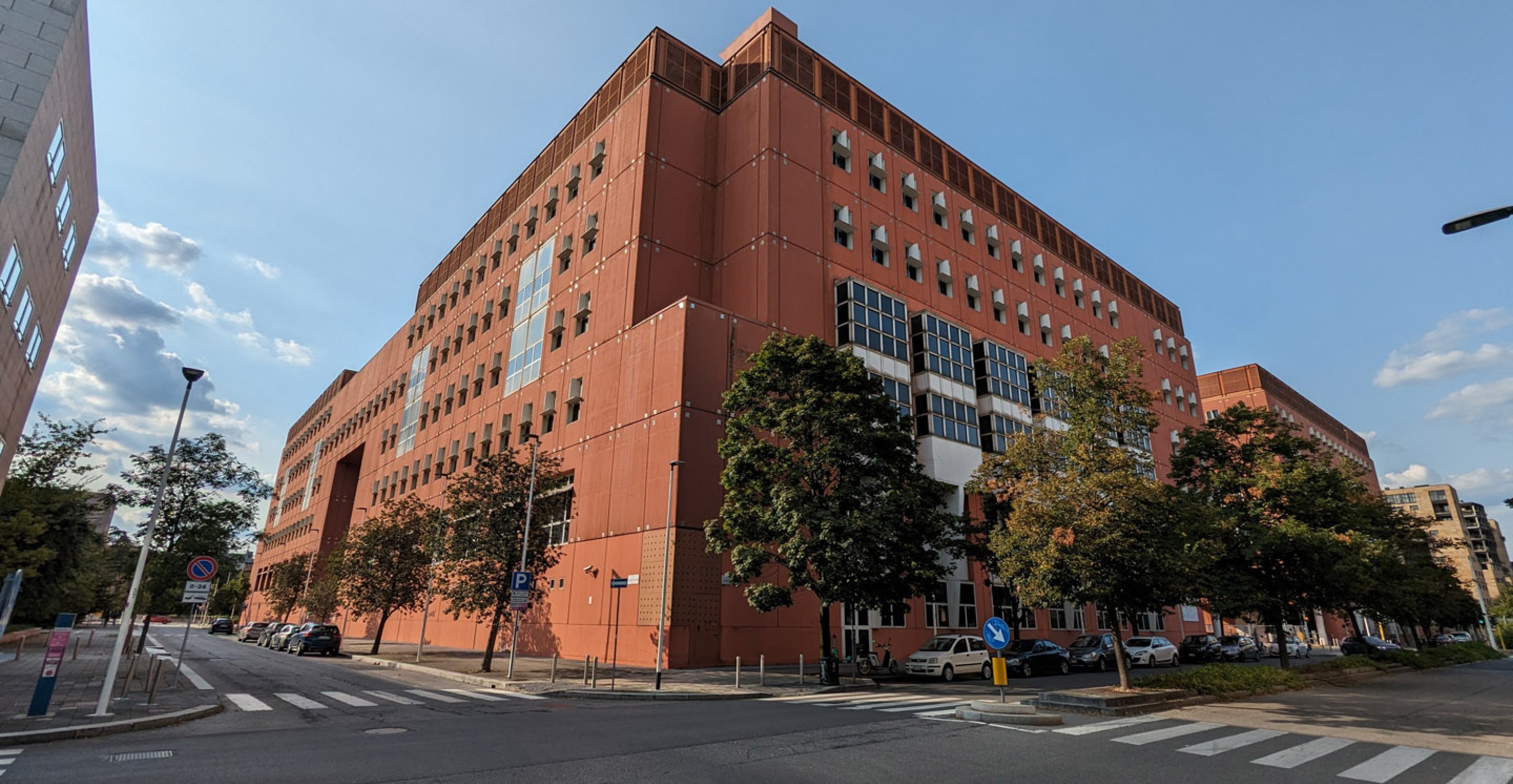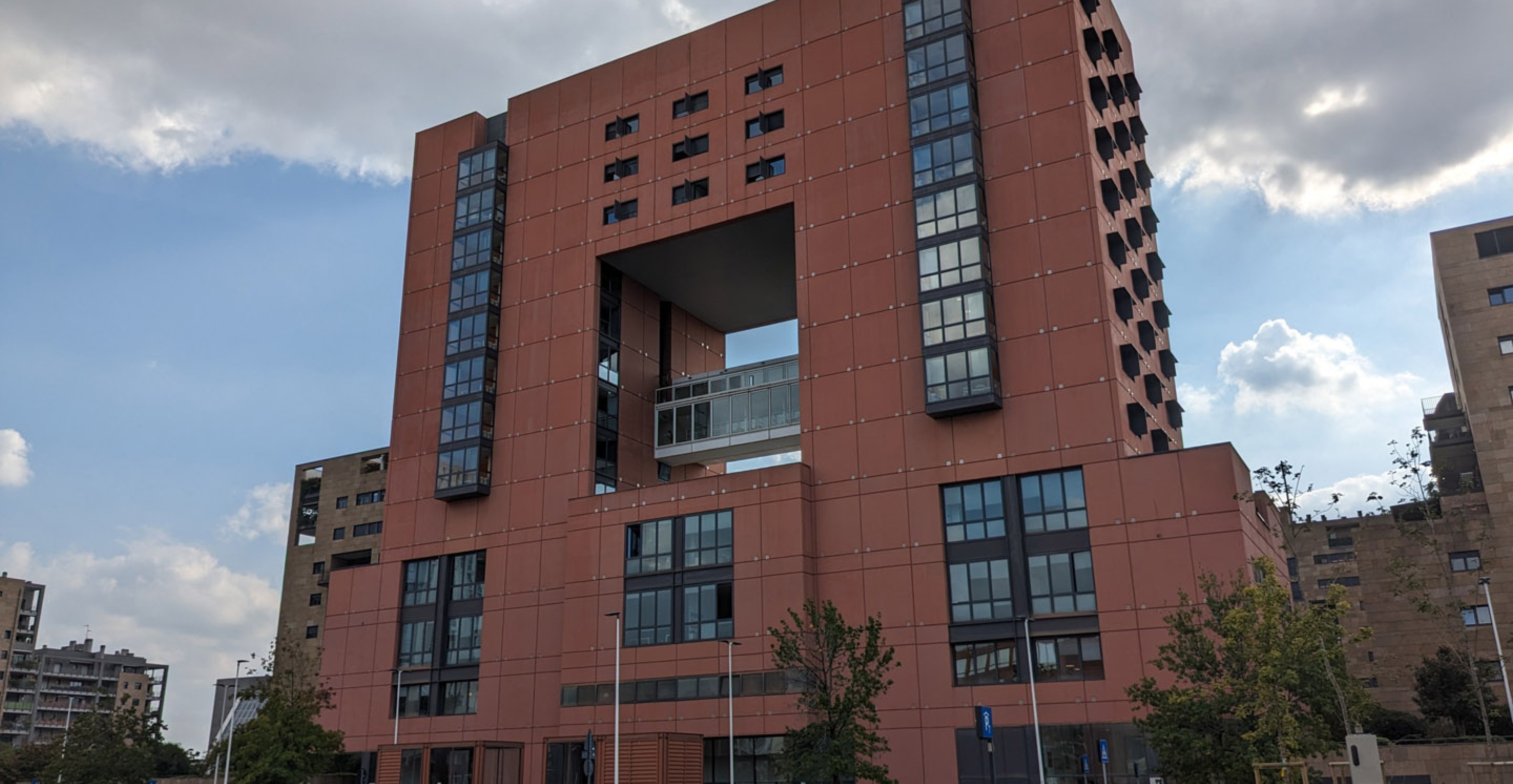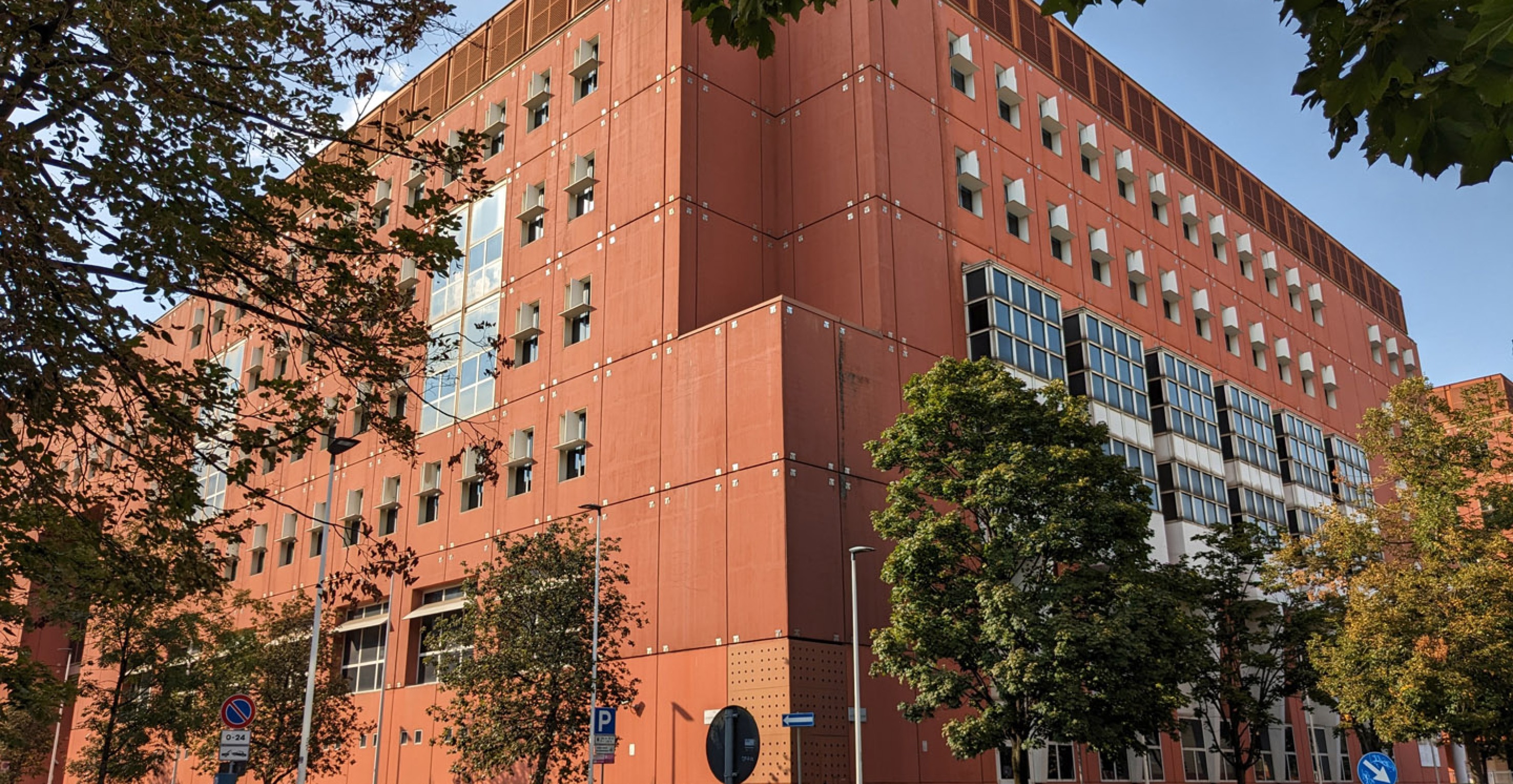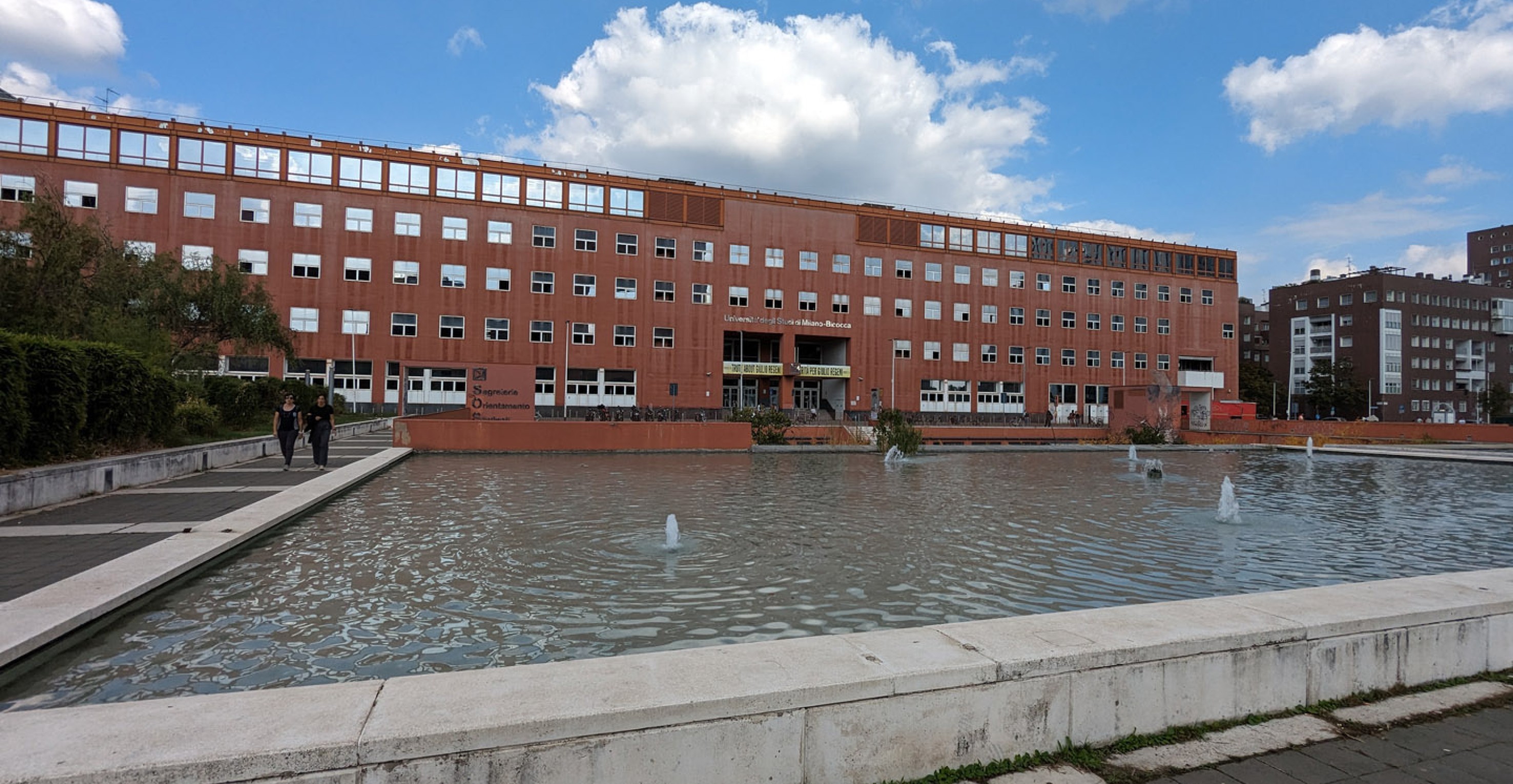
- General Info
- Agenda
- Venue & Accomodation
- Speakers
- Sponsorships
Speakers
Important Dates
Annual Conference Registration Deadline: March 8 13:00 CET, 2024
General Assembly 2024 Registration (ONLY for Members) Deadline: March 8 13:00 CET, 2024
Register also for the conference satellite events of the 14th of March
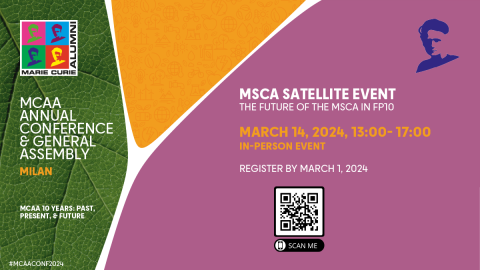
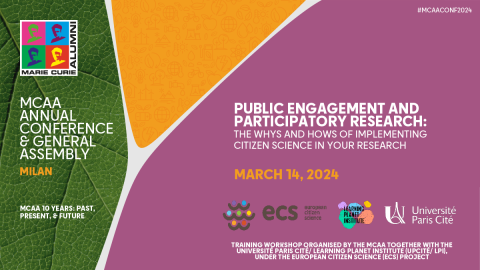
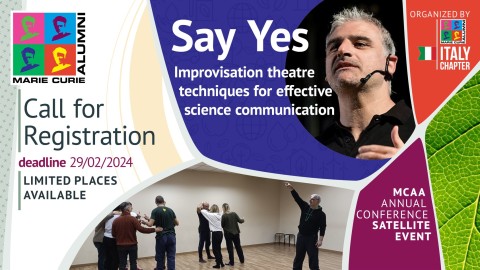
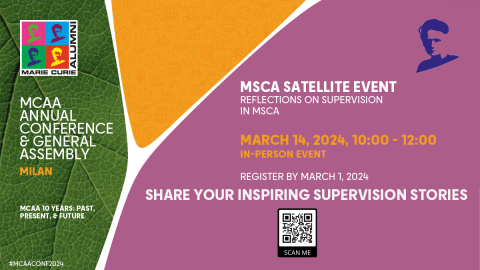
Welcome to Milan

Join us in Milan, the second largest city in Italy: "Milan is a microcosm of Italian culture and has a lot to offer its visitors" (Lonely Planet)
DAY 1 - Thursday 14 March 2024
Time
Room
Event
Speakers
DAY 2 - Friday 15 March 2024
Time
Room
Event
Speakers
DAY 3 - Saturday 16 March 2024
Time
Room
Event
Speakers
Narrative CVs: (almost) everything you need to know
Narrative CVs are a new CV format that is being rolled out by several funders with the goal to help researchers share their varied contributions to research while moving away from metrics such as JIF and H-index in a consistent way. This session will focus on the background and different formats of narrative CVs and their potential to shape the future of research assessment. It will also show how the research community is engaging with this new CV format, and how the new mentoring platform for narrative CVs hosted by the MCAA (PEP-CV) will help those who are developing their first narrative CV.
Sustainability, what is being done?
More info coming soon.
MSCA Fellows Outside Europe: Challenges and Perspectives
Being the MSCA fellow is as rewarding as challenging. It is especially true for two categories of fellows: (1) European citizens, whose research projects suppose the outgoing phase outside Europe; (2) non-European citizens, who receive European research funding to carry out their projects in Europe and in a third country or in Europe only. Based on the data collected from the MCAA members of non-European MCAA chapters, we will reflect on the challenges the fellows of both groups encounter during the MSCA programs and comprehend on the ways how could we make their experiences even better.
How to Win a Competitive MSCA Global Postdoc Fellowship
The MSCA Global Postdoctoral Fellowship is a 3-year fellowship that facilitates research mobility between Europe and third countries with a return phase of 1 year at a European Institution. Do you have excellent research ideas with potential global impact? Then an MSCA Postdoctoral Fellowship can be a path for supporting your career development. Join this grant writing session and meet successful applicants, evaluators, and research officers to learn how to write a competitive MSCA grant.
MCAA Volunteering: your Career Catalyst
This panel aims to showcase the transformative power of MCAA volunteering opportunities on career trajectories. Our speakers will share practical examples, illustrating how volunteering within the MCAA community has led to significant positive impacts on their professional journeys.
The session will cover diverse experiences, from leveraging MCAA activities for a successful academic career to transitioning from fundamental research into a variety of other careers. Through these real-life narratives, attendees will gain insights into how volunteering can contribute to finding one's true vocation.
Furthermore, our panellists will provide a professional perspective from career advisors outlining the various skills that can be cultivated through volunteering activities. Attendees will learn the value of enhancing their CVs with concrete examples of acquired experience, making a compelling case for the impact of volunteering on career development. Whether you're seeking a career change or aiming for an academic path, this session promises to be a source of inspiration and practical guidance for maximising the benefits of MCAA volunteering opportunities.
The MCAA path on achieving inclusive Family & Career balance
This session focuses on actions taken to ensure all MSCA fellows work and thrive in a safe environment, where balancing career & family or making plans for a family is a realistic option. It highlights past and present good practices and achievements. It discusses current and future plans led the GEDI Family TF in collaboration with Policy and Surveys WGs, ReMO and the MSCA Unit, aiming at producing evidence-based guidelines for all MSCA participating countries. It also provides space for discussing new collaborations within the MCAA and with external partners to maximise impact generation.
Stakeholders within Citizen Science- Don’t forget the citizen
The academic world is often depicted as an ivory tower of the elite. Untouched by the ordinary (non-academics), researchers traverse through various fields of knowledge and have an irreversible impact on life. Yet, the research process mostly undermines the importance of the main players- the people! Black, brown or white- people are constantly (often crudely) transforming the world. This session explores aspects of including diverse groups of citizens to participate in research; and its importance in democratising Science, promoting equitable data access and reducing social barriers.
Funding opportunities under the MSCA Doctoral Networks
The MSCA Doctoral Networks (DNs) provide invaluable interdisciplinary training and work-experience opportunities, ensuring PhD fellows are equipped to become the future problem-solvers of Europe. DNs are also an alternative, often not explored, opportunity for early to mid-career researchers who are trying to become independent researchers and develop their own European network.
The session aims to:
1. Encourage alumni to apply for DN funding, giving tips and advice
2. Highlight benefits of DNs from those who’ve learnt from the past, present and envisage the future of MSCA DNs
Evolution of Intersectorial Brain Circulation in Doctoral Candidates
In past 10 years, mobility between industry and academia has extensively increased. Intersectorial mobility is more frequent and taken under consideration in both sides. Industrial sector is targeting and recruiting more talent among researchers, while the academic sector is easing these transitions, like MSCA call 2023 displayed regarding the recent changes in the eligibility rules (maximum of 8 years full- time equivalent experience in research academia, section 2.3.2.
This panel aims to discuss the evolution on the profile of Doctoral Candidates (DC), current trends in the mobility.
Distinguished Speakers
Speakers
Patron
None

Sponsors
None

Welcome to Milan, Italy!
Join us in Milan, one of the world's fashion and design capitals, an international financial hub as well as a city of culture and art. The city that finds a perfect and dynamic balance between history and modernity is not to be missed!
Visit Milan Tourism Office (link) https://www.italia.it/en/lombardy/milan
The 2024 MCAA Annual Conference and General Assembly will take place at the University of Milano-Bicocca.
Address
University of Milano-Bicocca
U6 - AGORÀ
Piazza dell'Ateneo Nuovo 1
20126 Milano MI
The Bicocca campus is located in the Milan district of Bicocca, once home to large industrial companies such as Pirelli and Breda. The university was established as part of a large-scale redevelopment project launched around 1986.
All 21 university buildings but one are located in the Bicocca district.
You can right click on an image and save as or view it in high resolution.
The conference will be hosted in the main building (U6), more specifically:
- Aula Magna (auditorium, U6-1): 500 seats.
- Aula Marco Martini (U6-4): 244 seats.
- Two additional lecture rooms, up to 100 seats.
Visit the University of Milano-Bicocca (link) https://en.unimib.it/
Travel directions:
How to get to Milan? Click here for more info.
Flying to Milan
Milan has three airports, all well connected to the city center
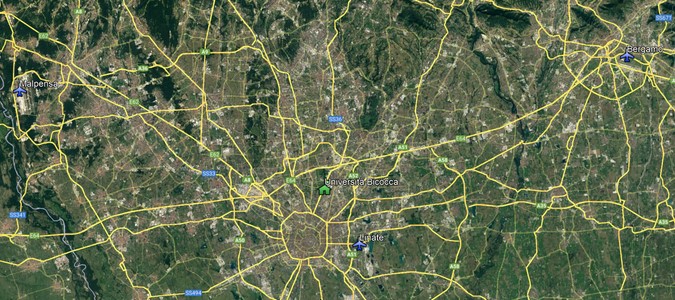
1. Aeroporto di Milano-Malpensa (MPX)
○ to city center by bus (different companies) every 10 minutes
○ to city center by train (Malpensa Express) every 30 minutes
2. Aeroporto di Milano-Bergamo (BGY)
○ to city center by bus (different companies) every 30 minutes
○ to city center by train + urban bus with 3 connections per hour
3. Aeroporto di Milano-Linate (LIN)
○ to city center by urban bus (line 73) every 6 minutes
○ to city center by metro (M4)
Trains
For sustainability purposes, please consider traveling by train as your first option to come to the MCAA conference. Milan is in a central position in Europe, and can be reached by train from several EU cities:
1. France
○ Paris - 5 direct connections per day (both TGV and Frecciarossa high-speed connections)
2. Switzerland
○ Bern - 4 direct connections per day
○ Geneve - 2 direct connections per day
3. Austria
○ Wien - 1 direct connection per day
4. Germany
○ Monaco - 1 direct connection per day
○ Frankfurt - 1 direct connection per day
Sustainable transportation
Milano is a city in central Europe that is easily accessible, also by train.
Milano has an extensive Metro network which makes mass transportation within the city very sustainable compared to cars and even buses, without compromising on travel speed and convenience. Furthermore, for shorter range travel there is a bike sharing service (BikeMI - https://bikemi.com/) with fixed stations and “free floating” access mode, which can be booked and rented by a smartphone App or by the website. The bikes can also be transported by metro.
A scooter sharing service is also available with several private companies: Voi (www.voiscooters.com), Wind (www.wind.co/italy), Bit (www.bitmobility.it), Lime (www.li.me/electric-scooter), Dott (www.ridedott.com), Helbiz (www.helbiz.com/it), Tier (www.tier.app).
How to get to the University of Milano-Bicocca
The University of Milano-Bicocca (Piazza della Scienza, 1) is located in the northern part of Milan, and can be easily reached from the city center by train and metro (see details below).
Click on the image below for a high resolution PDF.
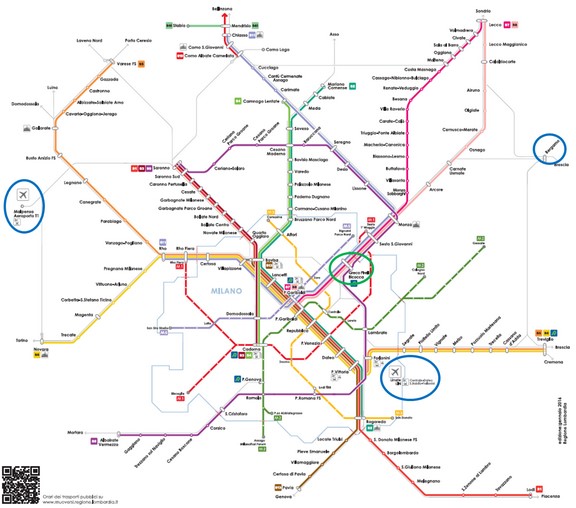
From the city center, the University can be reached in the following ways:
- Metro line M5 (direction “Bignami”), get off at “Bicocca”. From there, the University Campus can be reached in about 5 to 10 minutes walking.
- Metro line M1 (direction “Sesto 1° Maggio F.S”), get off at “Precotto”. From there, take tram line 7 (direction “Bicocca” or “P.le Lagosta”) and get off at “Università Bicocca Scienza”.
- Bus 87 from Milano Centrale at Piazza Quattro Novembre (direction “Villa San Giovanni M1”), get off at “Viale dell’Innovazione”.
The easiest way to get around in Milan is by subway (the Metro). There are 4 different metro lines: M1, M2, M3, and M5, with additional bus and tram lines. A public transport ticket (for zones Mi1-Mi3) costs 2.20 € and it is valid for 90 minutes. It is also possible to buy a 3-day pass or a “carnet”, which includes 10 tickets. Tickets can be bought with the official app (ATM Milano) or at every subway station. The lines M1, M2, and M3 close at about 00:30 in the night, while line M5 closes at about 23:30. The buses and trams generally operate until later in the night.
Hotels
As Milan is a very vibrant town, the accommodation options are numerous, especially along metro lines M1 and M5, that are directly linked to the University, enabling the conference participants to reach the venue easily. However, due to many events that take place in the city, it is strongly recommended to book as soon as you know you are joining the AC & GA. Do not postpone your reservation.
Here are some possible options to check:
● Hotel degli Arcimboldi (4 stars): https://www.hotelarcimboldi.it/
● Residence Milano Bicocca: https://www.residencemilano.org/
● Starhotels Tourist (Hotel), Milano (Italia) 4 stars: http://www.starhotels.com/en/our-hotels/tourist-milan/
● Hotel Greco, Milano (2 stars): https://www.hotelgrecomilano.com/
● Ostello bello B&B: https://ostellobello.com/it/
● Camplus Turro: https://www.camplus.it/citta/milano/camplus-turro/
● Camplus Lambrate: https://www.camplus.it/citta/milano/camplus-turro/

